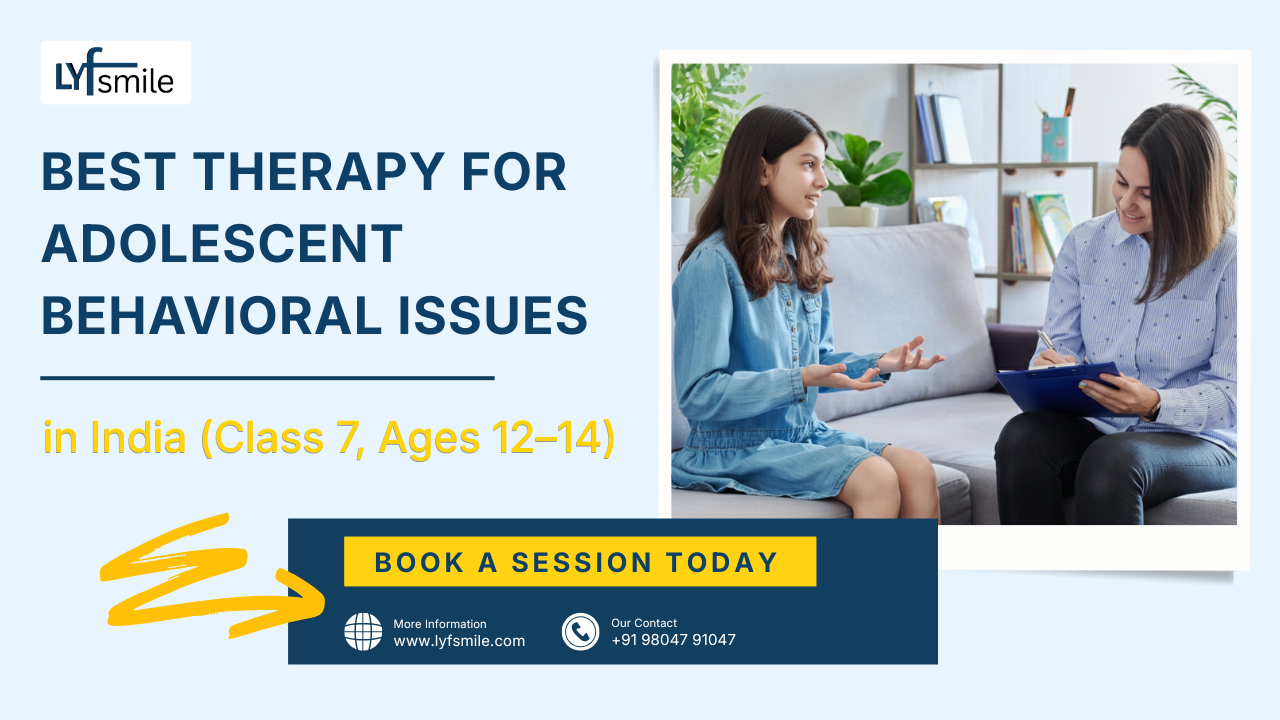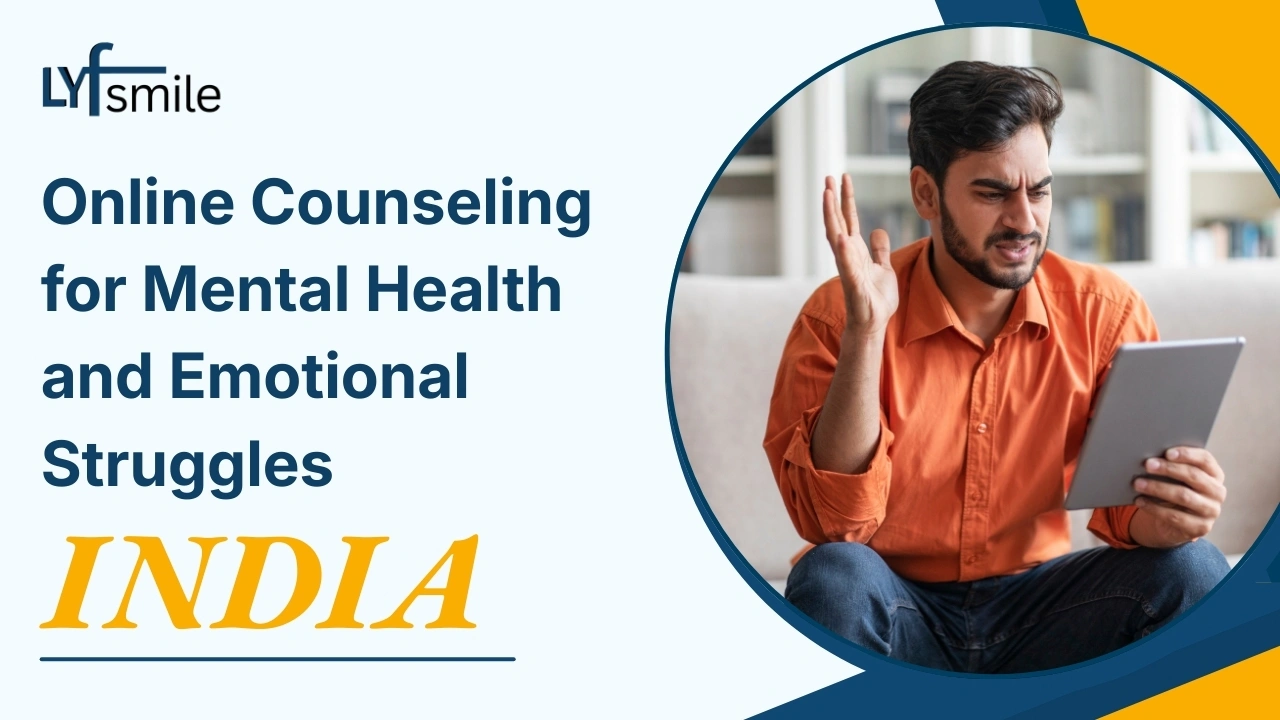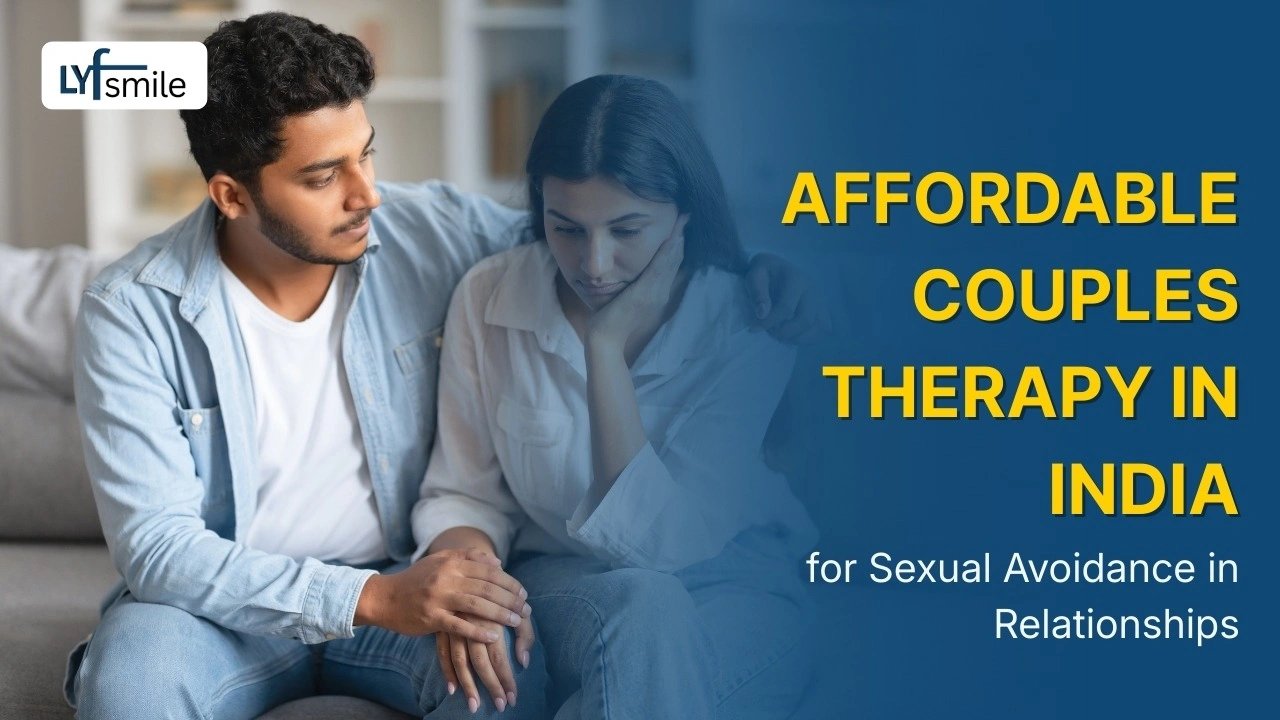
Silkey Goyal
How to Find the Right Therapist for Your Child Living Abroad
Parenting in today’s world comes with many challenges. From academic pressure to social adjustments and emotional well-being, children face different struggles at every stage of their growth. This makes it very important for parents to understand how to find right therapist for your child, so the child can receive the right support early in life. When children learn how to manage emotions and develop healthy coping skills at a young age, they are more likely to grow into confident and balanced adults.
Many parents hesitate or get confused about when to consult a therapist and whether therapy is really necessary. The truth is, therapy is not only for solving problems—it is also preventive and supportive care. It creates a safe environment where children can express themselves and receive guidance for long-term emotional well-being.
Why a Child Psychologist Can Make a Big Difference
When exploring how to find right therapist for your child, the role of a child psychologist becomes very important. A child psychologist is specially trained to understand children’s emotional, cognitive, and behavioral patterns, helping them build healthier coping mechanisms.
Benefits of consulting a child psychologist include:
Identifies emotional struggles early before they get worse
Helps children deal with academic and social challenges
Provides parents with effective parenting strategies
Reduces stress, anxiety, and behavioral problems
Builds long-term resilience and self-confidence in the child
A good child psychologist not only works with the child but also collaborates with parents to make sure that therapy continues at home, giving children the best chance to thrive.
Choosing the Best Child Therapist – What Parents Should Look For
In India, parents often search online for the best child therapist, but it’s not always easy to know which one will be the right fit for your child. Every child has unique needs, so the therapist must be chosen carefully.
Qualities of the best child therapist include:
Specialized training in child and adolescent psychology
A warm, friendly, and approachable nature to make children comfortable
Use of evidence-based methods like CBT (Cognitive Behavioral Therapy)
Regular communication with parents about progress
Experience in handling conditions like anxiety, ADHD, or OCD
The best child therapist is one who adapts therapy to suit the child’s personality and situation, making the process engaging and effective. Parents should also remember that therapy is a journey, not a quick fix. Over time, therapy helps children build self-confidence, problem-solving abilities, and emotional control.
Anger Issues in Children and Solutions Through Therapy

One of the most common problems parents report is anger issues in child. While occasional anger is normal, frequent outbursts or extreme reactions may indicate deeper concerns. If left unmanaged, these patterns can affect the child’s school life, friendships, and family relationships. Therapy plays a crucial role in addressing such issues.
How therapy helps children with anger issues:
Teaches children to identify and express emotions in a healthy way
Introduces calming techniques such as breathing exercises
Helps children recognize anger triggers and manage them better
Guides parents on how to respond positively to their child’s anger
Uses behavior charts and positive reinforcement for improvement
Through therapy, children learn emotional regulation and coping skills, which allow them to handle frustration constructively. With active parental involvement, results are even more effective.
How OCD and ADHD Affect Children
When parents think about find the right therapist for their child, it is often because of specific behavioral or emotional challenges that cannot be handled at home alone. Two common concerns are OCD (Obsessive-Compulsive Disorder) and ADHD (Attention Deficit Hyperactivity Disorder). Both conditions can impact a child’s academic performance, daily routines, and overall emotional health. Early intervention with the right therapist can make a life-changing difference.
OCD Treatment in Children – Breaking the Cycle
OCD treatment is becoming an important area of focus in child psychology today. OCD is a condition where children feel stuck in a cycle of unwanted thoughts (obsessions) and repetitive behaviors (compulsions). For example, a child may repeatedly wash their hands due to fear of germs or check doors multiple times before sleeping. These behaviors cause distress and interfere with everyday life.
How therapy helps with OCD in children:
Cognitive Behavioral Therapy (CBT) helps children recognize and challenge irrational fears
Exposure and Response Prevention (ERP) gradually reduces compulsive behaviors
Therapy builds emotional resilience and teaches coping mechanisms
Parents are guided on how to support their child without reinforcing compulsions
Long-term progress is tracked with structured therapy sessions
Therapists specializing in OCD treatment ensure that children do not feel judged but instead gain confidence to face their fears.
ADHD Problem in Child – Identifying and Managing Early

Another major challenge many parents face is the ADHD problem in child. ADHD is not about laziness or poor discipline; it is a neurological condition that affects focus, impulse control, and organizational skills. Children with ADHD may struggle in school, have difficulty sitting still, or get frustrated easily.
Signs of ADHD in children include:
Difficulty focusing on tasks or instructions
Excessive talking or restlessness
Forgetting homework or losing items frequently
Impulsive decision-making or interrupting conversations
Emotional outbursts when routines are disrupted
Therapists use structured techniques like behavior modification, mindfulness, and parent training programs to manage ADHD effectively. The goal is not to change the child’s personality but to equip them with tools that improve focus, self-control, and confidence.
Behavioural Therapy for Children – Building Emotional Strength

One of the most effective approaches in child therapy is behavioural therapy for children. This therapy helps children replace unhealthy behaviors with positive ones, improving both emotional health and social skills.
Benefits of behavioural therapy include:
Encourages positive behaviors through rewards and reinforcement
Teaches problem-solving and conflict resolution skills
Helps children build self-esteem by setting and achieving small goals
Reduces anxiety, anger, and impulsive reactions
Improves communication between parents and children
Behavioural therapy is highly practical and results-driven. For example, if a child struggles with classroom behavior, therapists design personalized strategies that teachers and parents can follow consistently. This creates a supportive environment both at home and in school.
Child Counseling – A Safe Space for Emotional Growth
Another powerful form of support is child counseling. Unlike structured therapies that focus on specific conditions, counseling provides a safe and supportive space for children to talk about their feelings. Many children hesitate to share problems with parents but feel more open with a counselor.
Child counseling typically helps with:
Dealing with school stress and peer pressure
Coping with family issues such as divorce or conflicts
Overcoming low self-esteem and self-doubt
Learning emotional regulation skills
Building social and communication skills
Child counseling is especially useful for children who may not have a diagnosable disorder but still need emotional support. It is often the first step for parents unsure about their child’s mental health.
Understanding Child Mental Health Problems and Their Solutions
Children today face a variety of mental health challenges, ranging from anxiety and depression to emotional dysregulation and social difficulties. Many parents are unaware of these issues because children may not express their feelings openly. Learning how to find the right therapist for your child becomes crucial to ensure these problems are identified early and managed effectively. Addressing mental health early helps children build resilience, improve social skills, and maintain academic performance.
Common Child Mental Health Problems
Some of the most common mental health problems in children include:
Anxiety and stress: Worries about school, exams, or social situations
Depression: Persistent sadness, loss of interest in activities, or withdrawal
Emotional dysregulation: Frequent mood swings, irritability, or difficulty controlling emotions
Behavioral problems: Impulsivity, aggression, or defiance
Low self-esteem and confidence issues
Without professional help, these issues can worsen over time and affect a child’s social, emotional, and academic development.
Why early intervention is important:
Prevents the problem from escalating
Reduces the risk of long-term psychological issues
Supports healthy coping and emotional regulation
Improves relationships with family, peers, and teachers
Encourages positive behavior and social skills
How Psychological Therapy Helps

Psychological therapy is one of the most effective ways to help children manage mental health problems. By consulting the best child therapist or psychologist, parents can ensure their child receives personalized care that focuses on their specific needs. Therapy provides a structured environment where children can talk about their feelings and learn practical skills.
Types of psychological therapy used for children:
Cognitive Behavioral Therapy (CBT): Helps children recognize negative thought patterns and replace them with positive coping strategies
Behavioural Therapy: Focuses on reinforcing positive behaviors and reducing harmful habits
Play Therapy: Especially useful for younger children to express emotions through creative activities
Family Therapy: Involves parents to improve communication and create a supportive home environment
Mindfulness & Relaxation Techniques: Teaches children how to manage stress, anger, and anxiety
These therapies are not only effective but also easy to implement at home with guidance from the therapist, making the healing process smoother and less intimidating for children.
Practical Steps Parents Can Take
Even outside therapy sessions, parents can take simple steps to support their child’s mental health:
Encourage open communication about feelings without judgment
Set consistent routines to reduce anxiety
Reward positive behavior to reinforce confidence
Teach relaxation techniques like deep breathing or meditation
Limit exposure to stressful situations and provide a safe, calm environment
Working closely with a child psychologist ensures that these home strategies align with professional therapy, making improvements faster and more sustainable.
Real-Life Example – Rohan’s Journey

Rohan, an 8-year-old student, struggled with frequent anxiety and mood swings. He avoided school activities and became irritable at home. His parents were unsure how to help until they consulted the best doctor psychologist for OCD treatment in India, who also specialized in child mental health. Through a combination of CBT, behavioural therapy, and family sessions, Rohan learned to express his feelings, manage anxiety, and regain confidence in social settings. Within months, his mood stabilized, and he became more engaged in school and hobbies.
Key takeaways from Rohan’s therapy:
Professional guidance ensures structured and effective progress
Children respond better when therapy includes family involvement
Early intervention prevents long-term mental health challenges
Personalized therapy plans are more effective than generic advice
How Much Does Child Therapy Cost in India
One of the first questions parents ask when considering therapy is, “How much does child therapy cost in India?” The answer depends on several factors, including the therapist’s experience, the type of therapy, location, and whether sessions are in-person or online. Generally, therapy sessions can range from INR 1,000 to INR 3,500 per session. Specialized therapies like CBT for OCD or ADHD may be on the higher end.
Parents should focus not only on cost but also on quality. Investing in the best child therapist ensures long-term benefits for the child’s emotional and behavioral health. Online therapy sessions have also made professional guidance more accessible and affordable, without compromising on the quality of care.
Factors influencing therapy costs in India:
Type of therapy (CBT, behavioral therapy, play therapy)
Therapist’s qualifications and experience
City or location of the clinic
Duration and frequency of sessions
Online vs offline therapy sessions
By understanding these variables, parents can plan a sustainable therapy schedule while ensuring their child receives professional care.
How to Find Child Psychologist in India

Finding the right professional can be overwhelming for parents. Knowing how to find right therapist for your child is crucial to avoid ineffective or generic treatment. Start by looking for certified child psychologists who specialize in the specific concern your child is facing, whether it’s anxiety, ADHD, OCD, or behavioral issues.
Steps to find a child psychologist in India:
Research online for licensed psychologists and verified clinics
Check for specialization in children and adolescents
Read reviews and testimonials from other parents
Schedule an initial consultation to assess comfort and approach
Ensure the therapist provides a structured treatment plan
A good child psychologist also collaborates with parents and schools to ensure consistent support for the child. Online platforms like Lyfsmile provide access to highly qualified professionals across India, making it easier to start therapy without long travel or wait times.
Case Study – Suchita’s Success Story
suchita, a 10-year-old, struggled with anxiety and anger issues that affected her school and home life. Her parents were confused about where to begin. After consulting a professional through Lyfsmile, they connected with the best child therapist who assessed suchita’s needs and designed a structured plan including CBT, behavioral therapy, and parent guidance sessions.
Within three months, suchita learned how to manage her anger, handle anxiety in social situations, and improve communication with her peers and family. The therapy also included homework assignments and mindfulness exercises that she practiced daily. suchita’s case demonstrates how a structured approach guided by professionals can produce noticeable improvement in a short time.
Key lessons from suchita’s therapy:
Personalized therapy plans are more effective than general advice
Parent involvement accelerates progress
Consistency in therapy and home practices ensures lasting results
Early intervention prevents long-term mental health issues
Conclusion – Taking the First Step
Mental health is just as important as physical health, and knowing how to find right therapist for your child is the first step toward ensuring a child’s emotional and behavioral well-being. Professional therapy, whether for anxiety, ADHD, OCD, or anger management, equips children with tools to handle challenges effectively.
At Lyfsmile, we connect parents with highly experienced child psychologists and therapists across India. With personalized plans, expert guidance, and convenient online and offline options, your child can receive the support they need to thrive. Don’t wait—take the first step toward better mental health for your child today.








